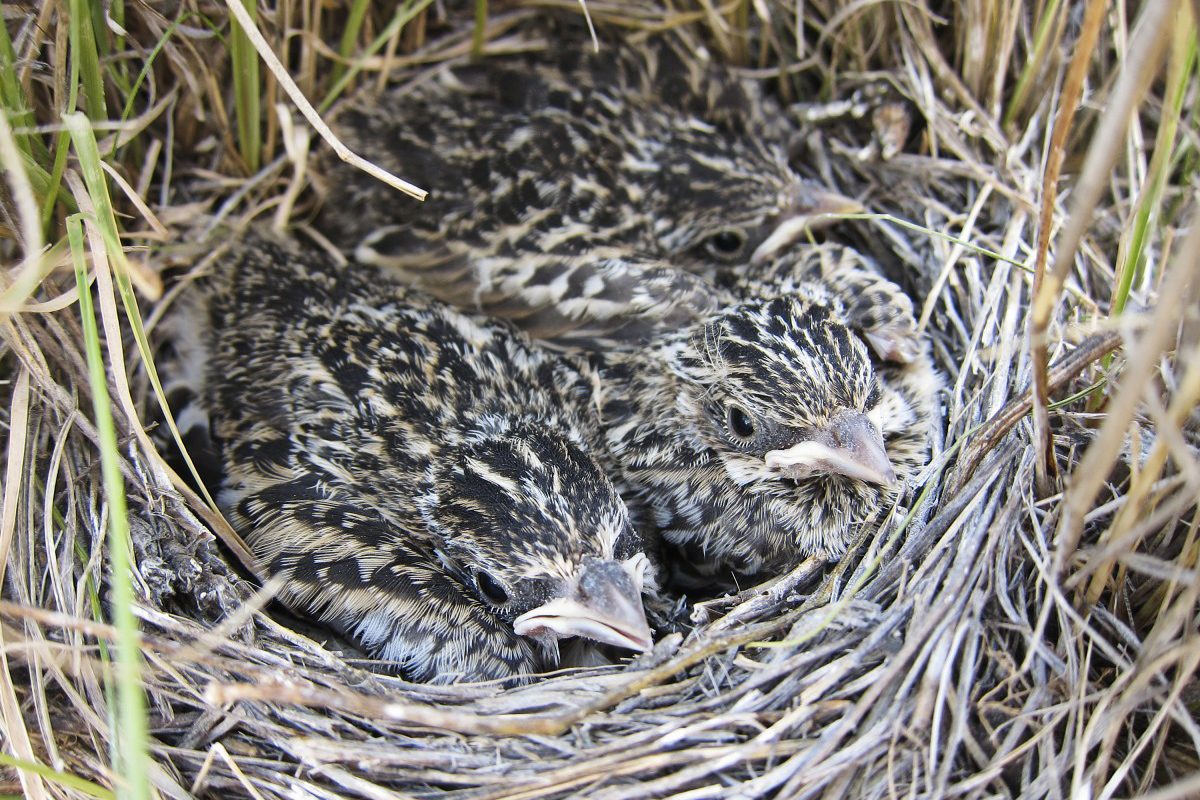
Lazy or smart? // Photo: Christoph Ng
Baby birds act like teenagers, new research finds
Researchers spy on fledgings with video cameras to reveal previously unseen behaviour
When and why baby birds leave the nest is something scientists know very little about. Rarely is someone watching a nest at just the right moment to see this behaviour—fledging—happen. To get around this, the researchers behind a new study from The Auk: Ornithological Advances deployed miniature video cameras to monitor over 200 grassland bird nests in Alberta, North Dakota, Minnesota, and Wisconsin, and they found that fledglings’ decision-making process is more complex than anyone guessed.
“Why should we care? Grassland birds are declining faster than birds in any other habitat,” says Nicola Koper, a professor in the Natural Resources Institute at the University of Manitoba. “Human activities change bird’s habitat, behaviour, and predators. We need to learn more about them to understand how we affect these species, and how we can help them.”
Koper worked with her North Amercian colleagues to test two competing hypotheses about fledglings’ decision making: Birds either leave the nest early in the day, to avoid nest predators and maximize the amount of time they have to find a safe place to hide from predators before nightfall; or, once their siblings start to leave, the remaining birds might decide to stay in the nest longer to take advantage of reduced competition for the food their parents provide, resulting in spread-out fledging times.
“And like boomerang millennials, sometimes nestlings leave the nest, and come back to the nest…. leave the nest, and come back to the nest. And finally, they leave the nest,” Koper says. “It turns out that 10-day old baby birds are actually a lot like teenagers,” she says, noting that sometimes they stay in there nests upwards of six hours past sunrise before fledging (making a mockery of our “early bird” stereotypes).
Surprisingly, there was little evidence that they left the nest to avoid predation, even though grassland songbird nests face very high predation risks—most baby birds are eaten by predators, so it’s curious that they don’t try harder to leave as soon as possible.
As they decide when to fledge, the nestlings of grassland birds are balancing two competing demands. On one hand, staying in the nest longer gives them more time to grow and develop before facing the risky outside world. On the other hand, predation risk might increase with time spent in the nest.
“Measuring fledging time can be tricky because chicks run in and out of the nest multiple times before leaving for good,” Dr. Christine Ribic, of the University of Wisconsin-Madison, says. “We don’t know why they do this; maybe they are exploring their world and gaining confidence before leaving to brave the world outside their home. Remember these birds have only been alive for a week and a half or so. Regardless, it’s a bit like kids going off for college but returning for school breaks … nestlings may leave and return repeatedly before fully fledging. Fledging is not nearly as simple as people think it is.”
Koper’s research was funded by NSERC, CFI, MRIF, Clayton H. Riddell Endowment Fund of the University of Manitoba, and Cenovus Energy.
Research at the University of Manitoba is partially supported by funding from the Government of Canada Research Support Fund.






